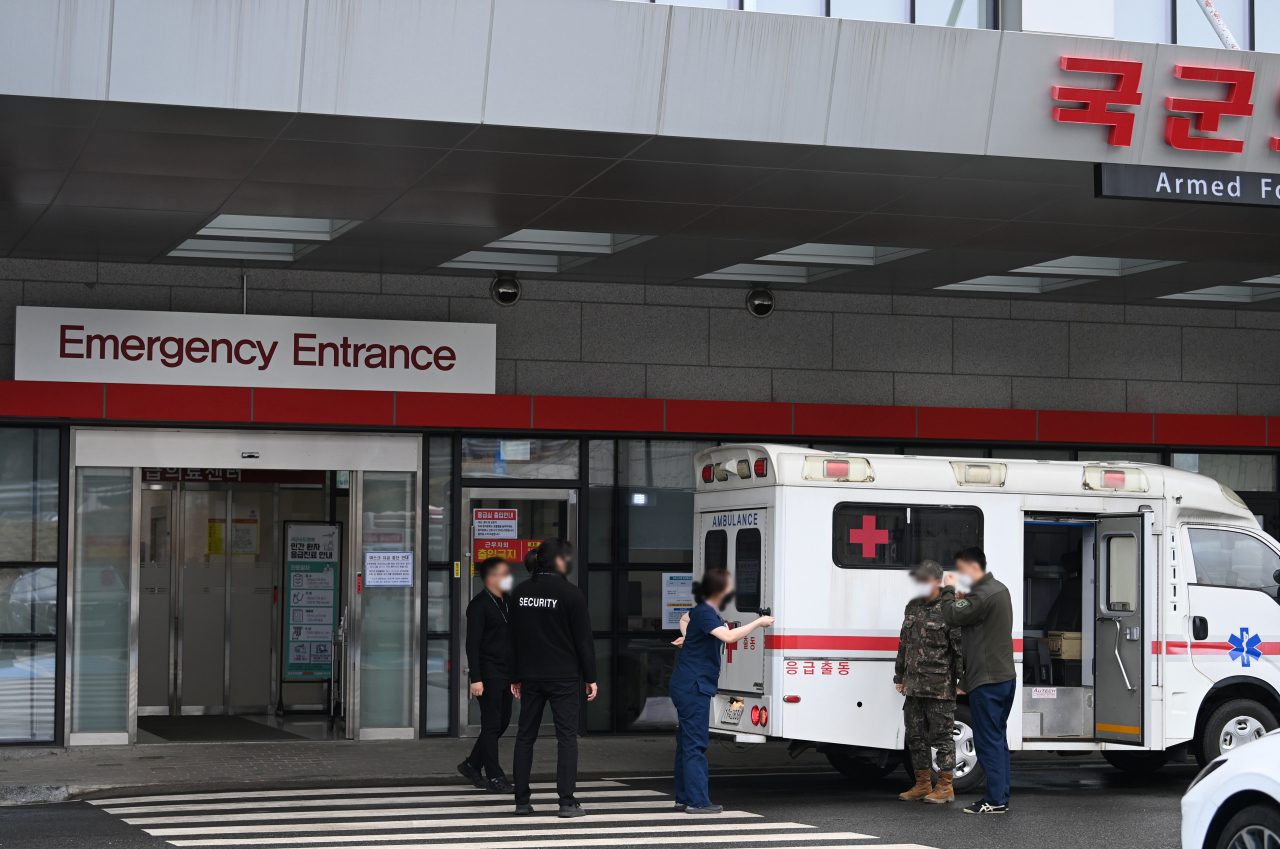Concerns over public health heighten as trainee doctors walk off job for 2nd day
By YonhapPublished : Feb. 21, 2024 - 09:39

Surgeries have been canceled and some patients were forced to be transferred to other hospitals as trainee doctors stopped working for the second day in a row Wednesday in protest of the government's plan to boost the number of medical students.
More than 6,400 trainee doctors nationwide, about 55 percent of the junior doctors, have submitted their resignations en masse so far, with about 1,600 of them walking off the job, according to the health ministry.
Medical services at the five biggest general hospitals in Seoul suffered partial disruptions Tuesday after interns and resident doctors did not show up for work following collective resignations as they protested the plan to raise the medical school admission quota by 2,000 seats next year.
To cope with a potential disruption to medical services, the government has extended operating hours at 97 public hospitals and opened emergency rooms at 12 military hospitals to the public.
"We are deeply disappointed and concerned that the collective action by trainee doctors has led to a disruption in medical services, such as the cancellation of surgeries," Second Vice Health Minister Park Min-soo told reporters.
"We cannot give justification to the actions of the doctors leaving their patients behind to protest a policy despite knowing what the collective action could result in," Park said.
Despite the government's back-to-work order, trainee doctors have shown no sign of backing down.
In a statement, the Korean Intern Resident Association, a major organization of trainee doctors, demanded the government withdraw the plan to increase the number of medical students.
Describing the plan as "ridiculous," the association criticized the government for treating trainee doctors as "criminals by overusing extrajudicial executive orders."
The government says the increase in the admission quota is needed to address a shortage of doctors, particularly in rural areas and essential medical fields, such as high-risk surgeries, pediatrics, obstetrics and emergency medicine.
The number of doctors in South Korea relative to the size of the population is among the lowest in the developed world, according to health authorities.
But doctors have claimed that the government has not had full consultations on the matter and that the move will compromise the quality of medical education and services. (Yonhap)



















